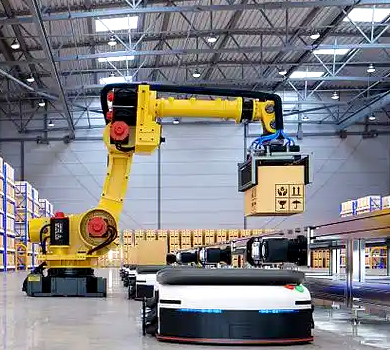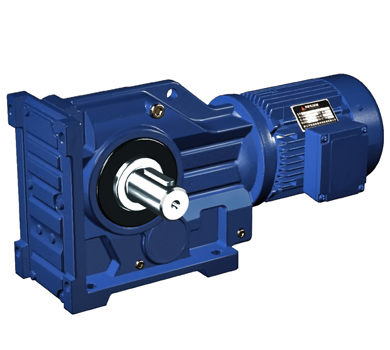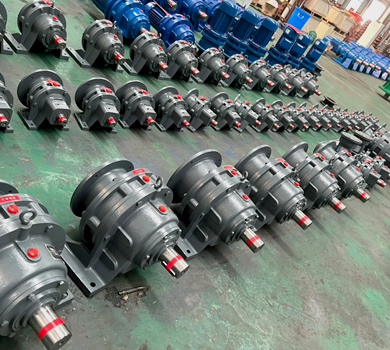Анализ вызовов и болевых точек отрасли
Платформа для сборки шприцов-ручек с инсулином является типичным примером промышленной автоматизации в области медицинских устройств. С увеличением спроса на продукты по управлению диабетом по всему миру производители сталкиваются с растущим давлением для повышения производительности, снижения затрат и обеспечения наивысших стандартов качества и безопасности продукции. Эти платформы обычно включают высокоточные роботизированные руки, конвейеры и автоматические системы тестирования, которые в значительной степени зависят от надежных и высокопроизводительных компонентов передачи.
На данный момент отрасль сталкивается с рядом критических проблем в системах передачи, включая:
- Высокие требования по крутящему моменту и низким скоростям: Процесс сборки часто включает тонкие операции, такие как позиционирование компонентов, вкручивание и калибровка, требующие высокого крутящего момента и точного управления.
- Компактность и интеграция: Ограниченное пространство в автоматизированных линиях требует компактных и модульных конструкций, которые могут быть легко интегрированы в существующие системы.
- Стабильность и надежность: Любые механические сбои или отклонения в производительности могут привести к серьезным проблемам с качеством или остановке производства, поэтому высокая надежность является необходимостью.
- Энергоэффективность: С увеличением стоимости энергии и акцентом на экологичность, низкое энергопотребление и высокая эффективность передачи становятся ключевыми критериями.
- Адаптация к условиям среды: Условия чистых помещений, стерилизационные процессы и воздействие агрессивной среды дополнительно нагружают механические компоненты, требуя специальных материалов и обработки уплотнений.
Ключевая роль и технические требования редукторов в отрасли
Редукторы являются важными компонентами на платформе сборки инсулиновых шприцов-ручек. Они служат ядром приводных модулей для точных движений и передачи усилия. Конкретные требования к редукторам в этой области включают:
- Плотность крутящего момента: Необходимо обеспечить высокий крутящий момент в компактном дизайне, чтобы поддерживать несколько сборочных станций.
- Точность передачи: Требуется высокая точность передачи и контроль люфта, чтобы обеспечить точное позиционирование компонентов.
- Быстрая скорость отклика: Короткое время ускорения и замедления необходимо для высокоскоростных циклов производства.
- Совместимость: Поддержка различных типов входных фланцев и модульных комбинаций, чтобы обеспечить совместимость с различными брендами двигателей и автоматизированных платформ.
- Структурная оптимизация: Поддержка угловой передачи и гибкости в пространственном расположении для адаптации к сложным геометриям сборки.
- Долгий срок службы и низкая потребность в обслуживании: Долгие часы работы и минимальное обслуживание критически важны для обеспечения непрерывного производства и снижения простоев.
- Совместимость с окружающей средой: Возможность работы в условиях чистых помещений и выдерживать процесс стерилизации при температуре до 134°C без потери характеристик.
Решение Waimica с коническим редуктором
Waimica разработала серию конических редукторов, специально адаптированных под требования платформы сборки шприцов-ручек с инсулином. Эти решения решают критические проблемы отрасли, обеспечивая комбинацию высокой производительности, гибкости конструкции и долговечности.
- Компактный и модульный дизайн: Конические редукторы Waimica обеспечивают компактные размеры и модульные варианты монтажа, позволяя гибко интегрировать их в существующие сборочные системы.
- Высокая плотность крутящего момента: Инженерные решения с продвинутой геометрией зубьев и высокопрочными материалами позволяют достичь крутящего момента в диапазоне 50-500 Нм, что подходит для широкого спектра задач сборки.
- Точность и стабильность: Зубчатые передачи разработаны с люфтом до 5 угловых минут, гарантируя высокую точность и минимальные вибрации в процессе работы.
- Высокая эффективность и низкое энергопотребление: Эффективность передачи превышает 90% при полной нагрузке, значительно сокращая потребление энергии и повышая экономику.
- Адаптация к окружающей среде: Доступны варианты уплотнений IP65 и IP67, что позволяет использовать устройства в чистых помещениях и выдерживать высокотемпературную стерилизацию до 134°C.
- Настройка и совместимость: Поддержка стандартных и пользовательских фланцев (ISO, NEMA), обеспечивающих бесперебойную совместимость с ведущими брендами двигателей и автоматизированных платформ.
Основные технические параметры конического редуктора Waimica
| Параметр | Значение |
|---|---|
| Выходной крутящий момент | 50-500 Нм |
| Люфт | ≤5 угловых минут |
| Эффективность | ≥90% (при полной нагрузке) |
| Способ монтажа | Фланцевый монтаж / Напольный монтаж / Монтаж на вал |
| Класс защиты (IP) | IP65 / IP67 (настраивается) |
| Рабочая температура | -20°C до +134°C |
| Срок службы | ≥20 000 часов (при номинальной нагрузке и скорости) |
| Материал | Нержавеющая сталь / Алюминиевый сплав / Пользовательские материалы |
Вывод и резюме ценности бренда Waimica
Конические редукторы Waimica обеспечивают надежное и высокоточное решение, полностью отвечающее строгим требованиям платформы сборки шприцов-ручек с инсулином. Благодаря акценту на исследованиях и разработках, настройке и мировым стандартам производства, Waimica доказала свою способность предложить альтернативы традиционным зарубежным брендам, сохраняя при этом высокую надежность, производительность и экономичность.
Перспективно, медицинская отрасль продолжит смещение к полностью автоматизированным линиям. Waimica готова поддержать эту трансформацию гибкими и высокопроизводительными системами передачи. В качестве надежного партнера в промышленной автоматизации, Waimica остается привержена предоставлению ценности через передовые инженерные решения и локальную поддержку, подтверждая свою роль в качестве ведущего поставщика на глобальном рынке медицинского оборудования.







